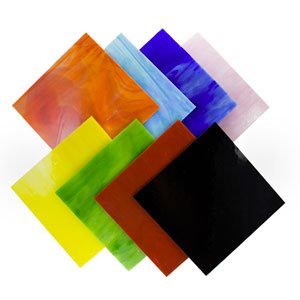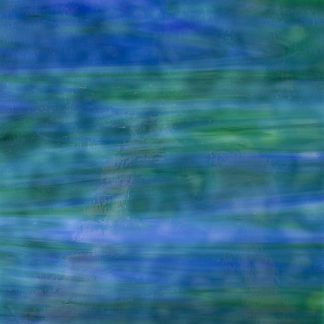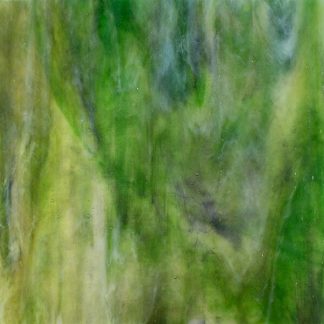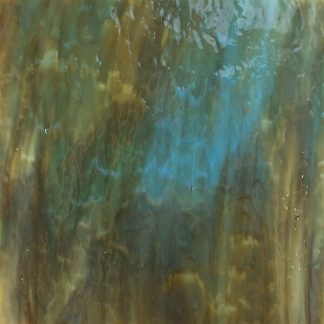Description
We have a beautiful selection of Youghiogheny brand stained glass in 6-inch square sheets. Use these square sheets to hand cut your own art glass shapes for mosaics. Our selection includes bright, earth tone, transparent, and iridescent varieties, and many types including swirled, streaky, mottled, and textured, for endless possibilities in mosaic applications. Along with High Strike, Stipple, and Reproduction Glass, we also now carry Fusible, Dichroic, Uroboros, Oceana, Granite, Ripple, Modern Art Series, and Textured Streakies all by Youghiogheny.
Youghiogheny stained glass is the highest quality art glass suitable for mosaic artwork currently available on the market. We are very excited to be able to make this premier product available to our customers. Made in the USA.
Stained Glass Surface Finishes
We primarily carry Youghigheny’s High-Strike (HS) and Stipple (SP) glass lines, as indicated in the product number of each variation. Glass labeled RG is Reproduction Glass; these are authentic reproductions of Tiffany stained glass. High-Strike glass is a traditional mottled art glass and looks glossy. Stipple glass is high quality and has a waxy, ice-like effect, with a textured, shiny finish. RG glass usually has a finish that is very similar to the HS glass. The thickness is remarkably uniform at exactly 3 millimeters, which is about 1/8th of an inch.
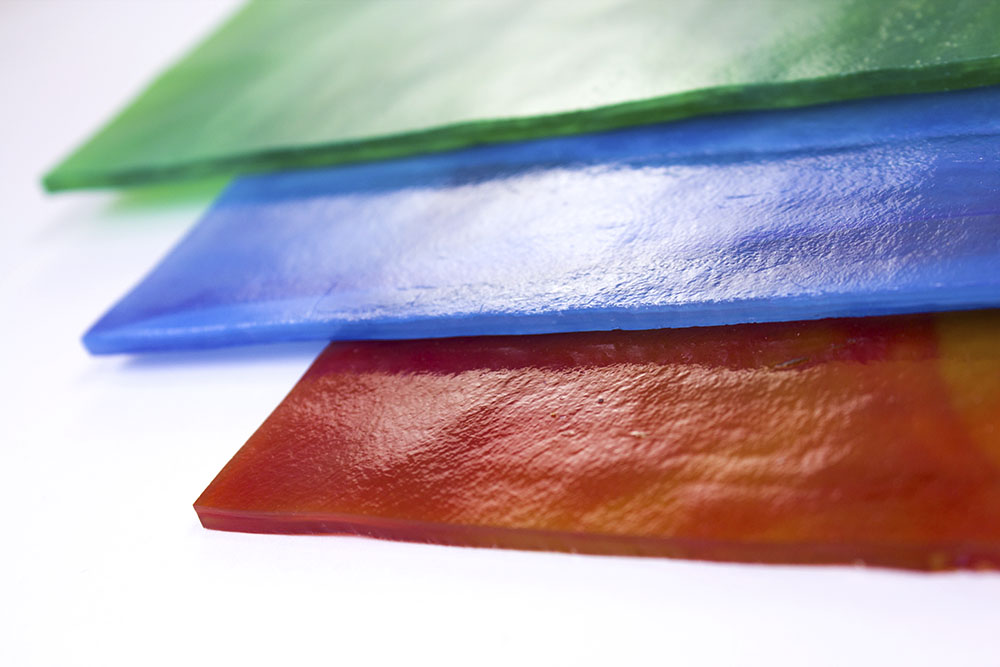
Stipple glass has a waxy or ice-like finish. These usually have a degree of translucence to them and are great for use in glass-on-glass mosaics. The surface of the glass has a small amount of texture.
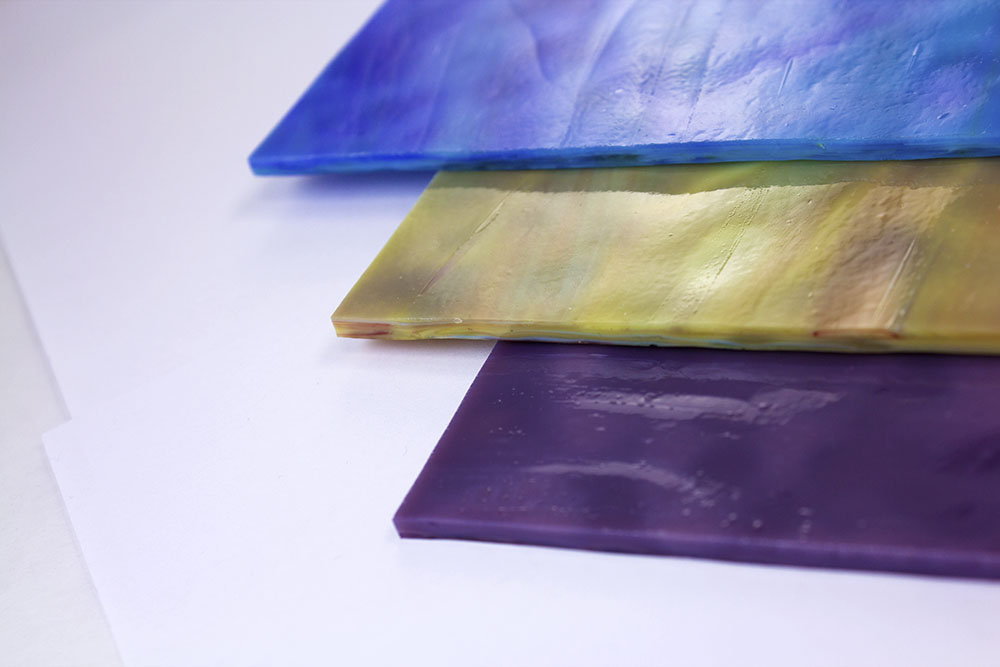
High Strike glass has a traditional finish, and is usually mostly smooth or glossy. This glass is more likely to be opaque. Reproduction Glass or RG variations usually have the same finish.
Finish Variations in Mosaic Art
The differences in texture and finish between HS, SP, and RG glass shouldn’t cause concern for most mosaic artists. We have used Stipple and High-Strike glass right next to each other in the same projects with spectacular results.
An N in the product number refers to use of neodymium for a strong purple pigment. The letter i refers to iridescence on the face of the glass.
Youghiogheny Stained Glass Sheet 6-Inch
- STAINED GLASS VARIES IN COLOR AND PATTERN BY SHEET. Do not order if you cannot tolerate variation.
- Sales unit: 6×6-inch square piece
- Squares are hand-cut using a straight edge and not always perfectly square.
- This is cutting stock for making small mosaic tiles; not intended for use as finished mosaic tile.
- Thickness: 3 mm or 1/8th of an inch
- Pigments: colorfast metal oxide.
- Coverage: 1 sheet covers approximately 1/4 square feet.
- frost proof
- impervious to liquids
- Suitable for indoor and outdoor installation.
- NOT suitable for floors. More fragile than glass tile.
Stained glass can have sharper edges than regular molded glass mosaic tile, so care must be used in cutting, handling, and grouting. Stained glass varies in color and pattern by sheet. Do not order if you cannot tolerate variation.
Product Coverage
Each 6-inch square sheet covers approximately 1/4 square feet when uncut. When you cut it up, you will gain additional coverage from the grout gap, but you will also lose some coverage in the form of cutting waste.
Compatibility
Sheet thickness is 3mm or approximately 1/8 inch, which is NOMINALLY the same as most of the glass mosaic tile we sell. That being said, mixed-media mosaics and even mosaic table tops are routinely made from dissimilar materials with even greater differences in thickness.
Cutting Stained Glass for Mosaics
Stained glass can be cut quickly with minimal force using our Mosaic Glass Cutters. Use this wheeled cutter for irregular rectangle and triangle shapes. For long straight cuts and curved cuts, use the Pistol-Grip Cutter to score the glass, and a pair of Running Pliers to apply pressure and snap it. Finally, you can also use cutting oil to lubricate cutters for more precision.
Use as Cutting Stock vs. Whole Tile
We hand cut these sheets using a straight edge, and so there is variation in size and straightness. We sell these square sheets as cutting stock for making small mosaic tiles, not as single finished tiles. Some sheets may have a rippled edge along one side of the glass – this is the outer edge of the larger sheet we cut into squares. For a finished tile option, see our 3/4-inch Morjo™ Stained Glass Tiles.
Mounting Stained Glass Mosaics
First, before mounting always rinse stained glass with detergent to remove any traces of cutting oil residue. Even if you don’t use cutting oil, it may be present from the manufacturer. For dry indoor mosaics, Weldbond adhesive works well for mounting stained glass. However, for outdoor and wet mosaics, we recommend you use thinset mortar.
Smoothing Sharp Edges
Stained glass often has sharper edges than molded glass mosaic tile when cut. At our studio, we use a marble file or a rubbing stone to knock off any razor edges remaining after cutting.
Safety Notes
We have chosen Youghiogheny stained glass for its beautiful quality and pigment density which makes it suitable for mosaic artwork. However, while it is non-porous and suitable for outdoor mosaic art including benches, tables, and garden décor, it is not recommended for tiling floors. If a mosaic becomes damaged on a surface where it could cut someone, then use the fine edge of a marble file to smooth the edge until you can replace the tile. This also applies to mosaics made with molded tile.
Rendering in Mosaic Art
Traditional stained glass art often makes use of custom-cut pieces that define entire figures or components. In mosaic art, the approach is different: figures and components are almost always built up from multiple tiles unless the object in question is particularly small. It is best to stick to one approach or the other for a particular piece of art..
American Made Stained Glass
Youghiogheny stained glass is made in Connellsville, Pennsylvania on the Youghiogheny River. This is quite possibly the most beautiful glass made in the world, including Italy. This is a great opportunity to buy an American-made product and support high labor and environmental standards at a price that is competitive with molded glass tile made in China.
How To Make Mosaic Art
For more advice on designing your mosaic project or mounting, cutting, and grouting tile, please see our page of Mosaic Frequently Asked Questions or our Mosaic Information Guide, which lists instructional pages described by topic. We also post new articles about making mosaics at our How to Mosaic Blog.
; [product_table category=”stained-glass” widths=”auto,auto,12,12,20″] ;